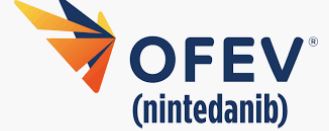Drug Authorizations: JYNNEOS smallpox vaccine, RYBELSUS for Type 2 Diabetes, ERLEADA for Metastatic Prostate Cancer, OFEV for Interstitial Lung Disease
JYNNEOS (Smallpox and Monkeypox Vaccine, Live, Nonreplicating) suspension for subcutaneous injection
Bavarian Nordic A/S
INDICATION: Caccine indicated for prevention of smallpox and monkeypox disease in adults 18 years of age and older determined to be at high risk for smallpox or monkeypox infection.
ADDRESSING UNMET NEED: Only currently FDA-approved vaccine for the prevention of monkeypox disease
- Routine vaccination of the American public was stopped in 1972; thus a large proportion of the U.S., as well as the global population has no immunity
- Reflects U.S. government’s commitment to preparedness for intentional release of this highly contagious virus
MECHANISM OF ACTION: Live vaccine produced from the strain Modified Vaccinia Ankara-Bavarian Nordic (MVA-BN), an attenuated, non-replicating orthopoxvirus; elicits humoral and cellular immune responses to orthopoxviruses
EFFICACY:
- Clinical study, n=400 healthy adults, 18 -42 years, never been vaccinated for smallpox
- Endpoint: Noninferior immune responses with Jynneos vs. ACAM2000, an FDA-approved vaccine smallpox prevention
- Supportive data from non-human primates – Jynneos protected from exposure to viruses related to the smallpox virus.
- Monkeypox effectiveness: Antibody responses in smallpox clinical study participants and in non-human primates
SAFETY:
- N>7,800 individuals receiving at least one dos
- Commonly reported side effects: Pain, redness, swelling, itching, firmness at the injection site, muscle pain, headache and fatigue
REG PATHWAY: BLA
- Priority Review and material threat medical countermeasure (MCM) priority review voucher
- Vaccine also part of the Strategic National Stockpile (SNS), the nation’s largest supply of potentially life-saving pharmaceuticals and medical supplies for use in a public health emergency
RYBELSUS (semaglutide) oral tablets
Novo Nordisk
INDICATION: Adjunct to diet and exercise to improve glycemic control in adults with type 2 diabetes mellitus
ADDRESSING UNMET NEED: First glucagon-like peptide (GLP-1) receptor protein treatment approved that does not need to be injected
MECHANISM OF ACTION: Acts as a GLP-1 receptor agonist that selectively binds to and activates the GLP-1 receptor, the target for native GLP-1
EFFICACY:
- Several clinical trials, placebo-controlled and compared to other GLP-1 injection treatments, stand-alone therapy and in combination with other diabetes treatments, paitents with Type 2 diabetes
- In the placebo-controlled studies: Aignificant reduction in blood sugar (hemoglobin A1c); after 26 weeks, 69% – 77% on Rybelsus decreased their HbA1c to < 7%, vs. 31% on placebo
SAFETY:
- Boxed warning: Increased risk of thyroid c-cell tumors including medullary thyroid carcinoma (MTC)
- Warnings: Pancreatitis, Diabetic retinopathy, hypoglycemia, acute kidney injury and hypersensitivity reactions
- Most common side effects: Nausea, diarrhea, vomiting, decreased appetite, indigestion and constipation
REG PATHWAY: NDA
- Required pediatric assessments: 52-week, randomized, double-blind, placebo-controlled parallel group study in pediatric patients ages 10-17
- Postmarketing requirement: Medullary thyroid carcinoma registry-based case series of at least 15 years duration

ERLEADA (apalutamide) tablets
Janssen
INDICATION FOR USE: For treatment of Metastatic castration-sensitive prostate cancer (mCSPC)
EFFICACY & SAFEY:
- Randomized, double-blind, placebo-controlled, multi-center clinical trial, n= 1,052 patients with mCSPC, Erleada vs . placebo
- Major efficacy outcome: Overall Survival (OR) and radiographic progression-free survival (rPFS) . Statistically significant improvements in OS (hazrad ratio 0.67), p=0.0053; rPFS (hazard ratio 0.48), p<0.0001
- Most common adverse reactions: Fatigue, arthralgia, rash, decreased appetite, fall, weight decreased, hypertension, hot flush, diarrhea, and fracture
REG PATHWAY: sBLA
- Initially approved for non-metastatic prostate canacer
- Used OCE’s Real-Time Oncology Review (RTOR) pilot program and accompanying Assessment Aid
- Granted priority review

OFEV (nintedanib) capsules
Boehringer Ingelheim
INDICATION: To slow the rate of decline in pulmonary function in patients with systemic sclerosisassociated interstitial lung disease (SSc-ILD).
ADDRESSING UNMET NEED:
- ~ 100,000 US individuals have scleroderma, and ~ half of scleroderma patients have interstitial lung disease associated SSc-ILD
- Slows rate of decline in pulmonary function in SSc-ILD
MECHANISM OF ACTION: IUnhibits multiple receptor tyrosine kinases (RTKs) and non-receptor tyrosine kinases (nRTKs); blocks intracellular signaling which is crucial for proliferation, migration, transformation of fibroblasts related to IPF pathology
EFFICACY:
- Randomized, double-blind, placebo-controlled trial, n=576 patients, 20-79 years with disease, treatment for 52 weeks – up to 100 weeks
- Primary endpoint: .Forced vital capacity (FVC) – a measure of lung function, defined as the amount of air that can be forcibly exhaled from the lungs after taking the deepest breath possible
- Less lung function decline with Ofev vs placebo

SAFETY:
- Most frequent serious adverse event: Pneumonia, diarrhea
- Warnings: Moderate or severe hepatic impairment, embryo-fetal toxicity
REG PATHWAY: sNDA
- Originally approved in 2014 for idiopathic pulmonary fibrosis (IPF), which is another interstitial lung condition
-
Received Priority Review designation, Orphan Drug designation
Image credits: Bavarian Nordic, Novo Nordisk, Janssen, Boehringer Ingelheim

